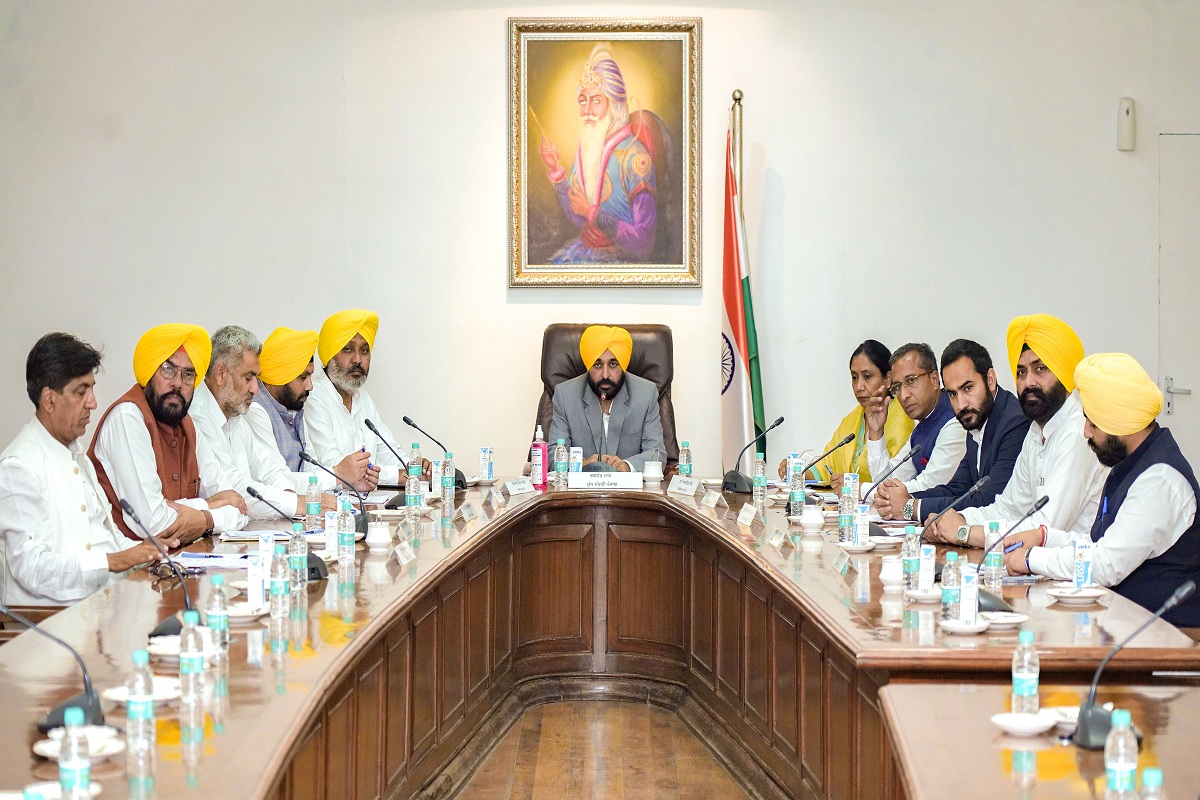SYL will never become a reality: Punjab CM
CM Mann stated that Satluj Yamuna Link (SYL) canal will never become a reality and the state government is duty bound to safeguard interests of Punjab.
This will also help in keeping a better check over the supply of illicit liquor into Punjab from the neighbouring states.

Photo: SNS
The Punjab Cabinet led by Chief Minister Bhagwant Mann on Wednesday approved a new Excise Policy for the state which is expected to generate revenue worth Rs 9647.85 Crore, 40 percent more than the last fiscal.
Disclosing this, a spokesperson of the Chief Minister’s Office said that the policy strives to keep a stringent check on the smuggling of liquor from the neighboring state through extensive enforcement and by incorporating new technological measures. The excise policy aims to collect Rs 9647.85 Crore in the year 2022-23. This policy shall be applicable for a period of nine months (1 July 2022 to 31 March 2023).
Advertisement
Meanwhile, the Cabinet also gave a nod for allotting two special battalions of police to the excise department, in addition to the already existing force, for keeping an effective vigil over the excise duty pilferage.
Advertisement
This will also help in keeping a better check over the supply of illicit liquor into Punjab from the neighbouring states.
“The new excise policy aims to break the nexus of mafia involved in the liquor trade. Accordingly, the manufacturer, wholesaler, and retailer will be at an arm’s length distance from each other. They will be completely isolated from each other with no common stakeholder between the above entities,” the spokesperson said.
The new excise policy also stipulates to tap the actual potential of the liquor trade by allotting 177 groups through a free, fair, and transparent manner of e- tendering. The general size of the group will be around 30 crores and there will be 6378 vends in Punjab.
“Excise duty on all kinds of liquor except Punjab Medium Liquor (PML) will be charged at one percent of the wholesale price. In the same pattern, the assessed fee of Indian Made Foreign Liquor (IMFL) will be charged at one percent of the wholesale price. The prices of liquor will now be almost at par with the neighboring states,” the spokesperson said.
To encourage capital investment and to increase the employment capability in the state, provisions for new distillery licenses and brewery licenses have been made in the policy. Further, a new license for the production of malt spirit has been introduced in the State. This has been done to encourage crop diversification and to provide better remuneration to the farmers, the spokesperson said.
Advertisement